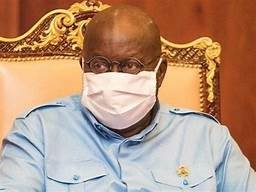Ghana’s ‘living with the virus’ strategy has been an essential facilitator of good supply chain governance during the COVID-19 pandemic, Professor Douglas Boateng, a supply chain management expert, has said.
Speaking at the recent African Institute for Supply Chain Research Conference (AISCR), as the keynote speaker where he shed some light on Ghana’s supply chain-related COVID-19 experiences, Professor Boateng, noted that the strategy, which was pioneered by President Nana Addo Dankwa Akufo-Addo, has helped curb the impact of the virus on human lives and the economy.
“Following the confirmation of the global pandemic, my initial observations in Ghana revealed an initial sense of confusion, panic and doubt. Inconsistent global messaging created uncertainties related to the causes, prevention and impact of the virus. This created a lot of fear and soon resulted in panic buying.
Tourism, hospitality, restaurants, catering, entertainment, retail, clothing and textiles, sports, construction and print media among many other industries experienced sharp declines in revenue which led to significant job losses,” he said.
Despite the initial shock, Prof Boateng said: “the President’s bold and carefully calculated living with the virus’ strategy supported by timely and scientifically sound updates to citizens have so far helped to avoid the cataclysmic consequences of the pandemic.
A COVID committee was set up which included sectoral leaders and scientists. This team engaged various captains of industry to work towards an effective way forward for the well-being of the citizens, the economy and society as a whole.
Regular communication including timely presidential updates and briefings from amongst others, the Department of Health were shared across communications platforms including radio, television and social media. This communication, together with calls from the President for citizens to take active responsibility for their actions and health demonstrated effective leadership from the top,” he said.
According to Prof Boateng, the government was able to create this enhanced sense of optimism through accountable leadership which was output driven, disciplined, had a respect for the rules and adopted a sense of functional pride.
“Through collective efforts across public and private domains, the President and his team were able to create a sense of hope and facilitate a return to work that promoted carefulness and compliance,” Boateng said, adding that the key was to adapt to our own specific context and not to just adopt global actions and responses.
Speaking in relation to supply chain impacts, Prof Boateng insisted that timely communication, collaboration from various sectors and keeping things as simple as possible were essential to facilitating good supply chain governance during the crisis.
“The ingredients for good supply chain governance and critical service delivery during this and any crisis include: effective leadership, decisiveness, directional and strategic thinking, a simple framework, a strategic plan, tactical and operational implementation guidelines, common standards, abiding by the rule of law, inclusive and equitable participation, performance metrics, focused on the long term, monitoring & evaluation, open and transparent, adaptive and responsive and it should be consensus and developmental driven,” he said.
“By taking a proactive approach to dealing with the COVID-19 crisis Ghana was able to drastically reduce infection rates and increase recovery rates. Effective leadership provided industry with the guidance and support needed to weather the storm and we are starting to see several sectors beginning to bounce back from this devastating pandemic,” he added.
As of November 29, known infection cases totalled 51,379 with a recovery rate of 97.9%, active COVID-19 cases of 1.5% and unfortunate death rate of 0.6%. Behind these relatively satisfactory statistics are human beings and families.
“Until there is an effective vaccine, the SAR-COV-2 virus is certainly patiently waiting to attack its next victim. Therefore, carefulness and compliance with the WHO safety protocols are still required and not carelessness and complacency,” Prof Boateng added.
AISCR, a continental network of leading supply chain experts, industrialists, professionals and academicians, is focused on deepening industrialisation and supply chain thinking in Africa. The conference provided a platform for the exchange of ideas and experiences related to supply chain accountability and governance during the COVID-19 global pandemic.
President Nana Akufo-Addo










